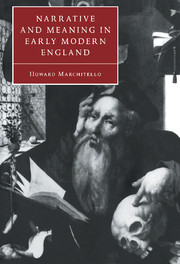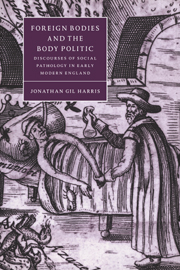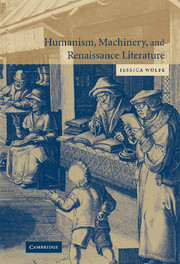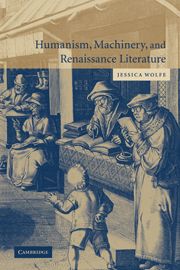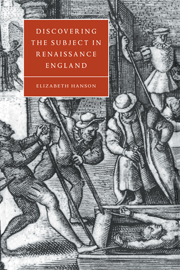Narrative and Meaning in Early Modern England
Howard Marchitello's study of narrative techniques in Renaissance discourse analyzes imaginative conjunctions of literary texts, such as those by Shakespeare and Thomas Browne, with developments in scientific and technical writing. Narrative was used in the Renaissance as both a mode of discourse and an epistemology; it produced knowledge, but also dictated how that knowledge should be understood. Marchitello uses a wide range of cultural documents to illustrate the importance of narrative in constructing the Renaissance understanding of time and identity.
- Wide, interdisciplinary study
- Links historical material to contemporary critical debates
Reviews & endorsements
"The volume will be most productive for those already conversant with the nuances of theoretical problematizing." C. Baker, Choice
"Howard Marchitello undertakes valuable work. He accomplishes his goals with great success." Bibliotheque d'Humanisme et Renaissance
"Howard Marchitello's Narrative and Meaning in Early Modern England offers a valuable series of deconstructive readings on topics that have beccome significant to Renaissance studies in recent years: the materiality of texts, cartography, anatomy,historiograghy, and status of the historical artifact." Gretchen Schultz South Centeral Review
Product details
October 1997Hardback
9780521580250
246 pages
229 × 152 × 17 mm
0.53kg
24 b/w illus.
Available
Table of Contents
- List of illustrations
- Acknowledgements
- Introduction: narrationalities
- 1. Shakespeare's Othello and Vesalius's Fabrica: anatomy, gender and the narrative production of meaning
- 2. (Dis)embodied letters and The Merchant of Venice: writing, editing, history
- 3. Political maps: the production of cartography in early modern England
- 4. Possessing the New World: historicism and the story of the anecdote
- 5. Browne's skull
- Notes
- Bibliography
- Index.

